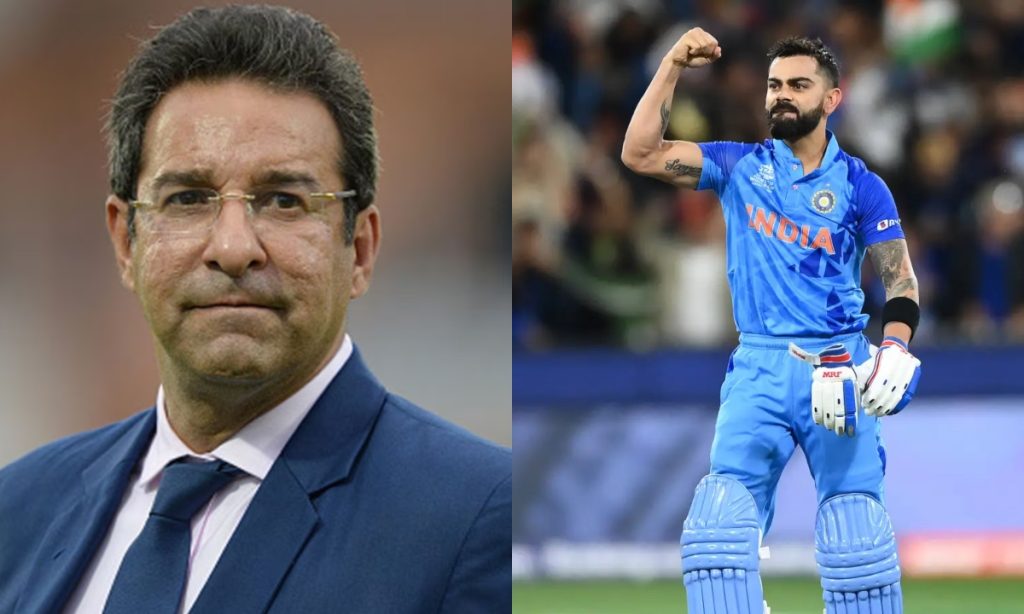In the ever-debated comparison between Virat Kohli and Babar Azam, Wasim Akram, a name synonymous with cricketing brilliance, has thrown his weight behind Kohli, declaring him as having “already written his name as the great of the game in the history book.” This statement, made amidst the fervor of cricketing discussions, particularly around the Asia Cup and other high-profile matches, underscores the legacy Kohli has built, overshadowing even the rising star of Babar Azam.
Virat Kohli’s journey in cricket is not just about statistics, although they are staggering. Over 12,000 runs in ODIs, numerous centuries across formats, and being the fastest to many scoring milestones are just numbers. Kohli’s impact on cricket transcends these figures. His approach to batting, marked by aggression and an unwavering focus, has redefined what it means to be a modern batsman. His ability to chase down targets, often under immense pressure, has earned him the nickname “Chase Master,” reflecting not just skill but a psychological edge in cricket’s most crucial moments.
“Babar Azam is on the right track, he’s the one of the greatest modern players but Virat Kohli has already written his name as the greatest of the game in the history book.” Former Speedster Said.
Akram’s recognition of Kohli isn’t merely about his batting prowess. Kohli’s captaincy, especially in Test cricket, has been transformative. Under his leadership, India rose to the pinnacle of Test rankings, a testament to his tactical acumen, the fitness revolution he spearheaded, and the culture of professionalism he instilled. Kohli’s era as captain wasn’t just about winning matches; it was about setting new benchmarks for how cricket could be played with passion and intensity.
The influence of Kohli extends beyond the cricket field. His fitness regime has inspired a generation, leading to a fitness revolution in Indian cricket. His endorsements, business ventures, and the Virat Kohli Foundation reflect not just his marketability but his commitment to societal good. Kohli’s presence has made him a global icon, transcending cricket to become a cultural phenomenon.
When Akram chose Kohli over Azam, it wasn’t a dismissal of Babar’s talent. Instead, it highlighted the different stages of their careers. Babar Azam, with his elegant stroke play and consistency, is often compared to Kohli, but as Akram noted, “Babar is on the way, there is no doubt. He is one of the modern greats, but it will take some time.” This acknowledgment of Babar’s potential while choosing Kohli speaks volumes about Kohli’s established legacy.
Kohli’s journey, however, hasn’t been without its challenges. His aggressive on-field demeanor, while criticized, also reflects his deep-seated passion for cricket, endearing him to many. His strategic decisions, like stepping down from T20 captaincy, showcase a mind focused on longevity and impact in formats where he believes he can contribute the most.
In recognizing Kohli, Akram isn’t just praising a player; he’s acknowledging a transformation in cricket. Kohli’s legacy isn’t just about runs scored or matches won; it’s about how he’s changed the narrative of Indian cricket, how he’s inspired a generation, and how he’s set a benchmark for what it means to be a modern cricketer. Kohli’s name in cricket’s history books isn’t just about his achievements; it’s about the spirit with which he’s played the game, making him, in Akram’s words, “the great of the game.”

